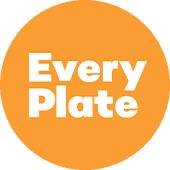Do you eat at the same times every day?
How about eating the same foods every day?
Do you sleep in on the weekends only to find you’re still exhausted when you wake up and can’t seem to find the energy to charge through the day?
Last week, we looked at 3 sneaky causes of fatigue and exhaustion—beyond lack of sleep—which may be zapping your energy levels.
This week, we’ll look at the impact that an eating routine can have on your energy levels, and how that can shape your week (and weekend!) for the better.
Your body loves routine
Setting times for your meals every day may seem like a chore to some, but there are some pretty hefty benefits that are hard to pass up.
Studies have shown, that many of the metabolic processes in the body are part of a repeating 24-hour period (our circadian rhythm) and that inconsistent timing of meals day-to-day can greatly affect our internal clocks.
This is significant to your digestive tract, which can preemptively secrete the right enzymes in anticipation of a meal [note]https://www.ncbi.nlm.nih.gov/pmc/articles/PMC2297467/https[/note].
This kind of bodily behavior is similar to that of someone who has a drink everyday after work at the same time.
The body anticipates the drink based on the individual’s circadian rhythm, and the liver starts producing enzymes to handle the incoming alcohol.
It’s quite remarkable, really!
In terms of digestion, the preemptive secretion of enzymes can speed up the digestion and and absorption of foods into usable energy for the day.
Conversely, irregular eating patterns can lower the body’s ability to process food as efficiently, leading to a more lethargic feeling throughout the day.
You body, and your digestive system, love routine.
Scheduled Meals Make Meal Prep Easier
When you’re focused on eating at the same times throughout the day, you will automatically hone in on what you want to eat for those meals.
Especially if you combine the power of forethought with the benefit of regularity, then meal planning and prep can be a breeze and potentially save you significant money.
How does one go about meal prepping and planning?
We could write an entire blog post on this topic, but in a nutshell you’ll want to write down what meals you plan on eating every day of the week (or at least weekdays).
From there, you can create a grocery list and decide on what you can make/prep ahead to make cooking during the week easier. It’s also easier then to cook once and eat several times from your effort.
It’s not just your stomach that loves routine…
Your stomach is just one of the many parts involved in the digestive process.
And while we may not directly associate them with digestion, your liver, pancreas and even your adrenal glands have a direct role in digestion.
For example, the stress hormone cortisol is produced in your adrenal glands and aids in the formation of glucose and its breakdown, your immune response, your levels of inflammation, and has even been linked to stress-induced eating habits.
According to Drs. Tanja C. Adam and Elissa S. Epel in their study on Stress, Eating and the Reward system, people who usually release higher amounts of cortisol under stress (high cortisol reactors) tended to eat more snacks after exposure to chronic stress[note]https://www.huffingtonpost.com/irene-rubaumkeller-/are-you-a-high-reactor-or_b_308831.html[/note].
On average, those snacks were higher in sugar and fat content than their lower producing cortisol neighbors (low cortisol reactors).
This spike in eating as a result of cortisol production also reflects addiction-reward-patterns in the brain and can be very hard to control.
Thus, when you help optimize your digestive system by eating on a schedule, you help nourish and protect all those other organs and systems too.
When it comes to meals, consistency is equally important to meal frequency…so, how many meals should you eat in one day?
This is the big question, isn’t it? And one that’s been debated by countless health and nutrition experts.
Should you eat every 2-4 hours? 3 square meals a day with no snacks in between? 3 large meals and 2 small snacks? Fast/eat nothing until dinner?
The answer you’ve been waiting for? It depends!
Some people feel better eating several more small meals per day, and others prefer to eat less and snack often.
While the nutritional literature suggested that 4-6 meals per day may have once been healthy, the literature now points people towards less than that.
Specifically, the small intestine undergoes a cleansing wave (called our Migrating Motor Complex or MMC) every 90 minutes, but that only occurs when no new foodstuff is being passed through it.
People who eat lots of small meals daily may not get the benefit of the cleaning being done during fasting cycles [note]https://health.usnews.com/health-news/blogs/eat-run/2014/01/28/how-grazing-affects-your-digestive-function[/note]. As a result, they may be more vulnerable to microbial imbalances and infections in the gut.
However, if you’re struggling with certain types of health concerns like adrenal fatigue, blood sugar imbalance or energy dips, you will likely benefit from eating every 2-4 hours.
Your Knew Health Coach or functional medicine practitioner can help guide you in this regard…as can your own inner-knowing and commonsense about what makes you feel energized.
However, it is worth noting that individuals who ate at regular patterns, regardless of number of daily meals, have been shown to have lower cholesterol and insulin levels versus those who ate at variable times.
So however often you eat, you will benefit from eating at the same times.
Chrononutrition and Weight-Loss
As its name suggests, chrononutrition deals with the study of the effects of time on nutritional factors in the body.
The field has been expanding in recent years, yielding a range of interesting studies and papers.
One such study looked at the abnormalities associated with circadian rhythms in overweight and obese women using temperature as a marker. They found that the circadian rhythms correlated with weight loss or gain.
In another study, participants were required to follow a 20-week weight loss treatment, but were split into two groups, those who ate early and those who are later.
The results were surprising in that the late-eater group displayed much less weight loss on the whole.
Their conclusion: weight-loss therapies should take into consideration the calories and macronutrients, on top of the timing of food. [note]https://www.ncbi.nlm.nih.gov/pubmed/23357955[/note]
Bottom line: your entire body loves an eating routine
Just a generation or two ago, nearly everyone grew up eating on a predictable schedule. But times have changed, and many of us did not grow up with the benefit of a consistent mealtime routine.
The good news is: your body is really good at predicting when to start producing certain hormones in preparation of eating or drinking—even if you’ve never kept a consistent eating routine in your life.
By setting a specific time each day for meals, you give yourself a chance to improve your digestion as a result of the pre-hormonal anticipatory response. That’s all you have to do!
If establishing an eating routine seems daunting, take it one small step at a time.
For example, make it a point to sit down and eat breakfast at the table (not while driving or sitting at your desk) every morning at the same time.
Not hungry before work? Then schedule a late morning break to enjoy a premade smoothie or breakfast bowl from home away from your desk.
Once you’ve got that down, move onto lunch at the same time. Followed by dinner, etc.
Chances are, you’ll be amazed by the positive changes in your energy levels and overall sense of calm and focus over time.
Need help establishing a better eating routine or improving your digestive health?
Knew Health Coaches are experts at helping our clients craft a customized wellness plan to address digestive health issues, stress, low energy levels, blood sugar issues and more.
To learn more, check out our membership page here.
Happy eating!
-The Knew Health Team
Resources









































